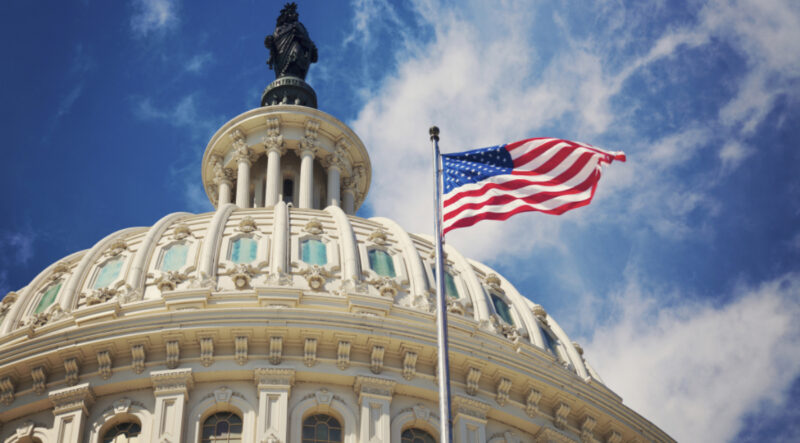Political rivals come together to boost American aquaculture
Rarely seen bipartisan initiative in US politics aims to strengthen food security with aquaculture. In Canada it’s a different story
By Fabian Dawson
SeaWestNews
There are very few things in Washington DC, that bring Republican and Democrat politicians together.
Boosting aquaculture production is one of them.
This week, Congressmen Stephen Palazzo (R-MS) and Edward Case (D-HI) introduced legislation in the U.S. House of Representatives to support the development of an offshore aquaculture industry in the U.S.
The companion legislation supports the bipartisan bill, Advancing the Quality and Understanding of American Aquaculture (AQUAA) Act, which was introduced in the U.S. Senate last October by Senators Roger Wicker (R-MS), Brian Schatz (D-HI) and Marco Rubio (R-FL).
The Bill aims to increase production of sustainable seafood through the raising of fish in federal waters, creating a robust industry in America including new jobs.
“I thank Congressman Palazzo (LA), along with our counterparts in the Senate, Senators Schatz (HI), Rubio (FL) and Wicker (MS) for partnering with me and look forward to working with them and many others toward expanding sustainable aquaculture,” said Congressman Case.
“Our bipartisan, bicameral AQUAA Act would provide a consistent efficient regulatory umbrella to help fully unlock the potential of open ocean aquaculture in a sustainable, environmentally sensitive and science-based way and grow economies for coastal states and food security for the nation,” he said.
“I am proud to introduce the AQUAA Act in the 117th Congress to support job creation along coastal areas, create a new market for agriculture products, and expand seafood processing—measures that can impact every part of the United States,” said Congressman Palazzo.
Stronger America Through Seafood (SATS), which advocates for policies and regulations to boost aquaculture production, described the recent bipartisan initiatives as timely actions that that can remedy the U.S. relying on seafood imports.
The U.S. has the ninth-largest coastline in the world but currently ranks 16th in the production of farm-raised seafood. It currently imports at least 85% of its seafood, about half from aquaculture in other countries.
The Washington, D.C.-based Consortium for Ocean Leadership (COL) estimates that the new legislation will lead to a doubling of U.S. aquaculture production to about 1 million tons and create an additional 50,000 direct and indirect jobs, assuming 20 direct jobs per 1,000 tons of seafood produced, and five jobs per 1,000 tons in equipment, feeds, processing, marketing, and food service.
“At a time when supply chain challenges and a global pandemic are slowing the delivery of seafood to America’s storefronts and kitchens, the expansion of American aquaculture is an opportunity to try to solve these problems” said Sarah Brenholt, campaign manager for SATS.
“Federal lawmakers have an opportunity to help increase U.S. production of healthful, sustainable, and affordable seafood while also addressing the food security needs of all Americans. As the global population grows, the U.S. must lead the charge in aquaculture development using scientific best practices for the most environmentally sound manner of food production,” said Brenholt.
In Canada it’s a different story.
Canada remains the world’s only major farmed seafood producing country without modern national legislation specifically designed to govern a responsible and sustainable aquaculture industry.
The Canadian Aquaculture Industry Alliance (CAIA), has been consistently calling a federal Aquaculture Act.
“The timely development and passage of a federal Aquaculture Act is the most important and overriding need for the sustainable and competitive growth of aquaculture in Canada,” said Timothy Kennedy, CAIA President & CEO.
“With a supportive policy and regulatory environment focused on innovation, economic growth and sustainability for our sector, our industry is ready to seize this opportunity, creating new middle-class jobs and growing our economy,” said Kennedy.
The proposed Federal Aquaculture Act will govern a sustainable seafood farming industry that is generating an estimated $5.16 billion in economic activity and 25,000 full-time jobs for Canadians, added Kennedy.
The industry’s growth however is constantly challenged by anti-aquaculture activists who have mounted several campaigns to oust salmon farmers from Canadian waters, insisting with their science-deficit propaganda, that growing fish in their natural environment must be replaced with growing fish in land-based tanks.
They claim, without any credible scientific evidence, that salmon farmers are endangering wild fish populations and keep threatening politicians with a brainwashed voting bloc.
In a recent social media campaign, the activists have been reusing a questionable photo of sea-lice on salmon to mislead the public and politicians in an effort to push their agenda.

